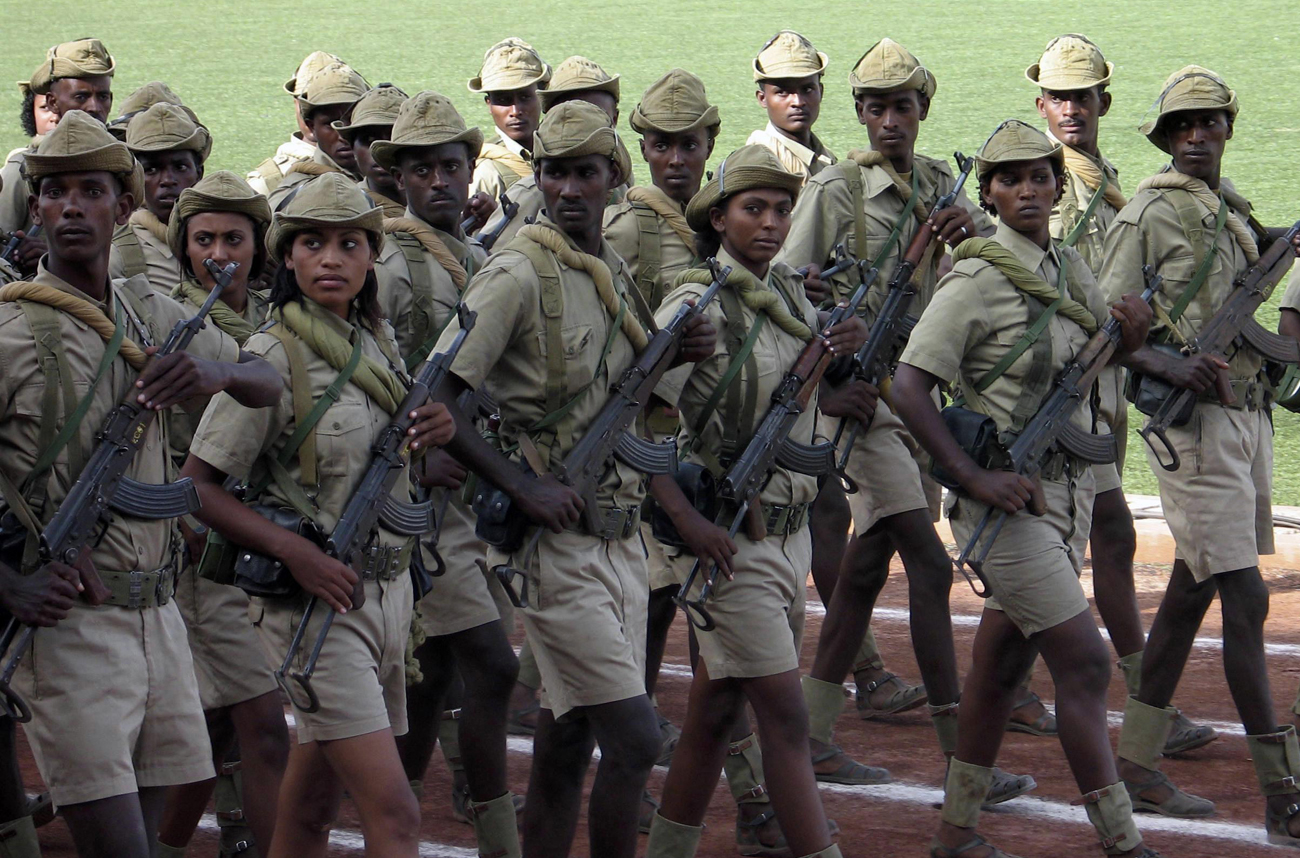The Horn of Africa nations cut ties after the outbreak of a 1998-2000 border war that killed 80,000 people and degenerated into a diplomatic stalemate after Ethiopia refused to cede land to Eritrea in violation of a United Nations ruling.
Ethiopia's Prime Minister Abiy Ahmed, 41, reversed that policy last month, paving the way for a historic meeting with Eritrea's President Isaias Afwerki, 71 which ended in a declaration Monday that the "state of war ... has come to an end."
The two nations have restored telephone communications for the first time in two decades and Ethiopian Airlines is set to begin passenger flights between the two capitals as early as next week.
But despite the diplomatic bonhomie, negotiating access to Eritrean ports for Ethiopian goods, demarcating the contentious border region and ensuring good relations will not be simple, analysts say.
"Certainly, we need to proceed with some caution. I think there is a long way to go, but ultimately everybody wants lasting peace in the region," Horn of Africa researcher with Chatham House Ahmed Soliman told AFP.
- Ethiopian dissent -
Eritrea was once part of Ethiopia and comprised its entire coastline on the Red Sea until it voted for independence in 1993 after decades of bloody conflict.
This move rendered Ethiopia landlocked, and the deterioration of relations after the outbreak of the war in 1998 forced Ethiopia to channel its sea trade through Djibouti.
The two countries have shown little signs of rapprochement since the signing of the Algiers peace agreement in 2000.
Analysts say the surprisingly rapid burying of the hatchet was possible only because of Abiy's ascension to the post of prime minister in April.
But Abiy, described by Soliman as "a man in an extreme hurry" is already facing internal dissent over the rapprochement, notably from the minority Tigrayan population who live along the border and face losing territory to Eritrea.
Soliman said leaders from the Tigray ethnic group were "notably absent" from the talks in Asmara and that "their inclusion will be critical to the implementation of peace."
Isaias, the only leader Eritrea has known since independence, was a rival to Ethiopia's former prime minister Meles Zenawi, a Tigrayan who presided over the war and the decision to ignore the 2002 boundary ruling.
The Ethiopia-Eritrea war "was between Isais and Meles," said Kjetil Tronvoll, professor of peace and conflict studies at Bjorknes University College in Norway.
When Abiy's predecessor Hailemariam Desalegn took over, this was merely seen as "a change on the top".
Dan Connell, a researcher on Eritrea at Boston University, said Isaias sees Abiy -- an ethnic Oromo -- as a break from the Tigrayans, who have in the past been seen as the most powerful faction of the ruling Ethiopian People's Revolutionary Democratic Front (EPRDF).
"I think this process will go all the way. It's clearly in the interests of both countries," Connell said.
- 'Potential hurdles' -
Photos from Abiy and Isaias's first meeting in Eritrea's capital Asmara on Sunday showed them sharing hugs, smiles and cups of coffee.
But Soliman warns the fine details of the rapprochement will not be straightforward.
"There are potential hurdles everywhere," he said.
Eritrea and Ethiopia are both among Africa's poorest nations. However Ethiopia has seen its economy grow by double-digits in recent years and is seeking wider options for importing and exporting its goods by eyeing ports in Somalia and Eritrea.
Meanwhile Eritrea, one of the world's most isolated nations, has pursued policies that have hamstrung the economy by scaring off investors, including an indefinite military conscription program the UN has likened to slavery.
Eritrea's ports are a far cry from the ultra-modern facilities that have shot up in neighbouring Djibouti, but Tronvoll said the country is still likely to make demands if Ethiopia wants to use its shores to export their goods.
"How much concessions are they willing to give to Eritrea to create a sustainable peace (and) what will be the reactions within Ethiopia to that?" Tronvoll asked.
Soliman said Isaias will face his own pressure to reform once the threat of Ethiopian aggression, which he has used to justify his repressive policies, is over.
Hundreds of thousands of Eritreans have fled the country in recent years to Europe, blaming the national service scheme they say keeps them impoverished.
"If things were to open up in Eritrea in terms of the political situation and people's freedoms, then I am sure that would encourage people to stay," Soliman said.
But thus far most of the talk of reform has come from Abiy alone.
"Isaias hasn't said very much. We haven't learned too much from Isaias as to what is going to change," Soliman said. DM




